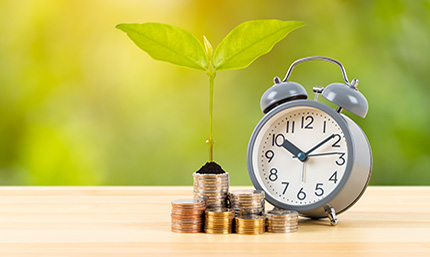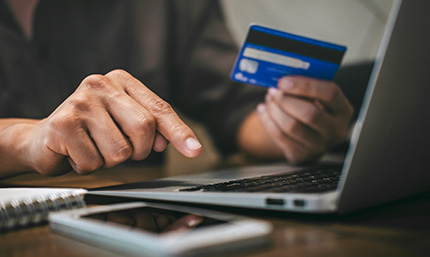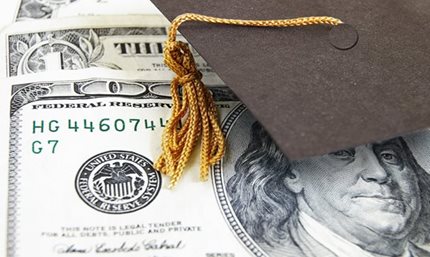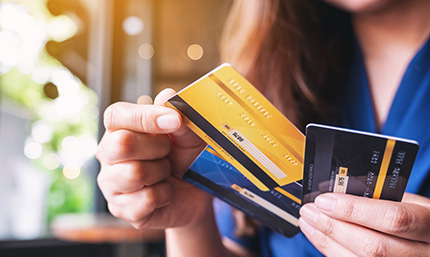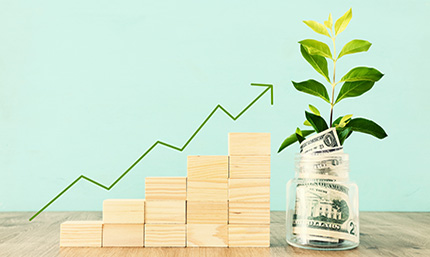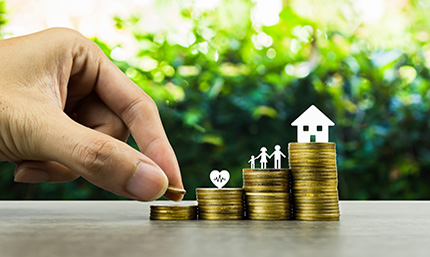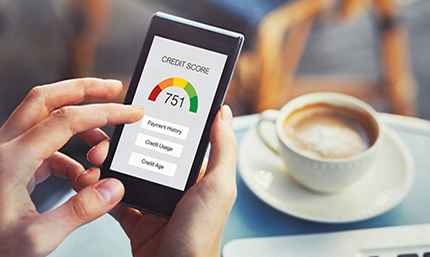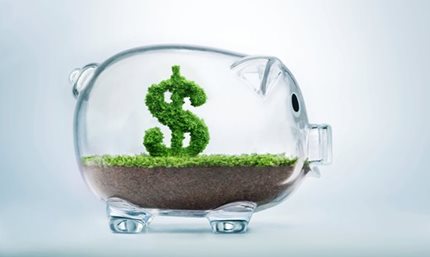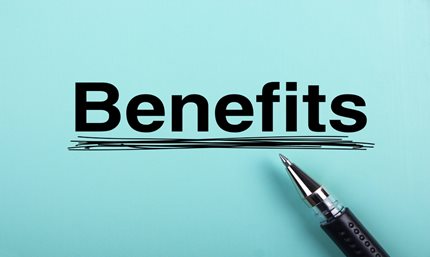News & Tips
Does Paying Off Loans Early Hurt Your Credit?

Making loan payments on time is one of the most important factors in building and maintaining a positive credit score, so you may be worried whether paying off loans early will hurt your credit. Not only will we cover that topic here, but we’ll also answer the most common follow-up question: Will paying off loans boost credit scores?
Factors in Credit Score Calculations
To determine if paying off a loan can hurt your credit, it’s helpful first to understand what makes up the calculation of a credit score. Here we’ll look at the breakdown of a FICO® Score, an industry standard:
1. Payment history (35%)
Lenders will look at your credit history and use it to predict future behavior. Paying loans and credit cards on time is a significant factor in calculating a FICO Score.
2. Amounts owed (30%)
FICO determines how much you owe on credit cards and loans. Owing money on loans is not automatically a negative, although overextending your credit can hurt your score. Your credit utilization ratio, the percentage of available credit you’re using on revolving accounts, plays a significant role in determining your credit score, and keeping it below 30% is ideal.
3. Length of credit history (15%)
While having a longer credit history is generally beneficial, it’s not required to establish a good score.
4. Credit mix (10%)
This refers to having a mix of credit types such as installment loans (mortgages, car loans, student loans, personal loans) and revolving credit (credit cards, lines of credit).
5. New credit (10%)
Applying for multiple loans in a short period can pose a risk to credit scores, especially when the applicant doesn’t have a long credit history.
Paying off a loan impacts several factors: reducing payment history, amounts owed, length of credit history, and credit diversity. FICO also places more weight on still-open accounts because they will continue to indicate how well debt is being paid in the present. Once paid off, the loan cannot contribute data points to scoring models.
As this quick overview demonstrates, paying off loans early may affect various credit score factors. Still, the overall impact will likely affect one person somewhat differently than it would someone else, depending on their complete financial picture. For example, it may be more impactful for a person who had only one loan and paid it off versus another person who had multiple loans and credit cards and continued to make payments for them on time.
So, Can Paying Off a Loan Early Hurt Credit?
Let’s return to the initial question “Does paying a loan off early hurt credit scores?” While the impact on credit may look different for each person, any potential drops in a score will likely be temporary. Just keep in mind that some loans charge pre-payment penalties (but not at SCCU) for paying off loans early.
So, when considering paying off loans early and credit score impacts, it can make sense to think about why you plan to pay your loan off early—and if that’s the best decision for your situation.
Two questions to consider:
- What are the benefits of paying your loan off early?
- Are there better ways to use those dollars?
What Are the Benefits of Paying Your Loan Off Early?
The most significant benefit of paying off a loan early is that you’re saving more money by no longer paying interest on your loan (this calculator can help show you that amount!).
Another potential benefit of paying off your loan is that it may help reduce your debt-to-income ratio (DTI), a key factor that lenders use to determine if you qualify for a loan. A DTI is a percentage that estimates the amount of your gross income you’d need to cover your mortgage and other debt payments.
Let’s say you’ve found your dream house, but maybe lenders are saying your DTI is too high. Paying off a loan may help you reduce your DTI and qualify for a mortgage, but it could also drop your credit score a few points, so it may be better to reduce your overall debt balance but not pay off any loans or credit cards in full.
The lower the DTI, the easier it is to cover your bill payments out of your income each month. You can find more detailed information here, and feel free to use our DTI calculator to compute yours.
Are There Better Ways to Use Those Dollars?
Let’s say you have a personal loan with a balance of $2,000. Would it be better to pay off that personal loan or use it to help pay down a credit card with a higher interest rate? These calculators can help. Maybe paying off your personal loan will help you have more money every month and reduce your DTI, helping you achieve your goals.
If you don’t have an emergency savings account (or yours has less than three to six months’ worth of living expenses), would it be better to put these funds into savings? This calculator can help determine if you should save or pay off debt. Again, there’s no one right answer for all situations. These are simply issues to consider before making your financial move.
Consolidating Debt
Debt consolidation refers to taking out a brand new loan and using it to pay off current debts such as personal loans, credit card balances, medical bills, etc. Ideally, the new loan would have a lower interest rate than those on outstanding debts you’re paying off. If the interest rate is lower and the term is the same or shorter, then this should also reduce the monthly payment, making it easier to fit within your budget.
Plus, with debt consolidation loans, many people love that they have fewer monthly payments to juggle. When there are several payments to address each month, it’s easier to miss one, which could hurt your credit score.
You could consider consolidating debt with a credit card balance transfer, a personal loan, or a home equity loan.
Let’s get back to the article’s main topic—paying loans off early and credit score impacts—will a debt consolidation loan hurt your credit score?
In the long run, credit scores will likely go up because of these factors:
- It’s easier to make your payments on time, the most significant factor in credit score calculations.
- This adds a new credit item to your report, which is a factor.
- You’ll reduce the amount of money owed more rapidly, which is also a factor.
Small credit dings could also occur if you close out credit accounts after you pay them off. Plus, applying for a personal loan or a credit card is a hard hit to your credit reports, and too many of these that occur too closely together could have a negative impact.
Learn more about how to consolidate debt.
Building or Improving Credit
While the impact on credit will vary from person to person, paying off a loan may encourage you to look for ways to build or improve your credit.
Top ways to build credit:
- Open a Visa® Secured credit card (or a Visa® Student credit card for ages 15-18) or a Secured Loan.
- Become an authorized user on a family member’s credit card.
- Have a co-signer on a loan or credit card.
Top ways to improve credit:
- Make loan and credit card payments on time.
- Keep balances low on credit cards.
- Keep old credit card accounts open and use them regularly.
Learn more about credit with our "Beginner's Guide to a Good Credit Score." You can check your credit for free once a year at AnnualCreditReport.com. With an SCCU Online or Mobile Banking account, you can also see your FICO Score for free!
How SCCU Can Benefit You
By choosing Space Coast Credit Union, a not-for-profit financial institution that exists to serve our members, you’ll benefit from more personalized service and no application fees. We also offer competitive interest rates on loans and credit cards to help you save more. Plus, we offer Free Checking accounts! You can become a member of SCCU by making a $5 deposit in a Share Savings account if you live or work in one of these 34 counties.
Visit our Financial Wellness page to help you make financial decisions!
